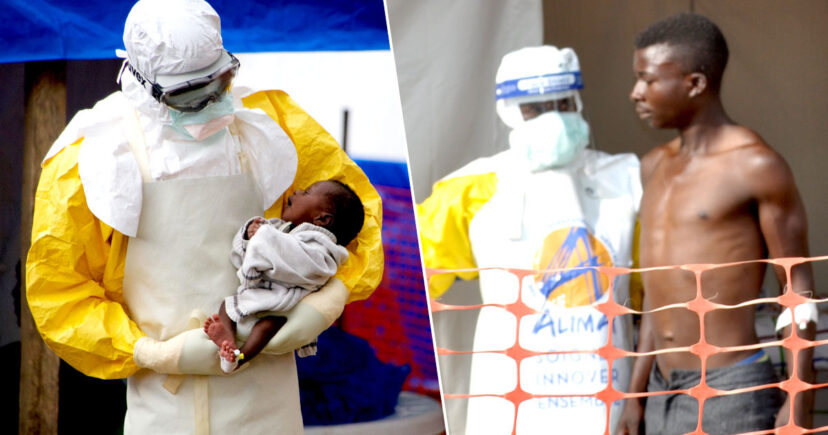Scientists
have said Ebola can no longer be labelled an incurable disease after success
with drug trials in the Democratic Republic of the Congo (DRC).
The DRC is
struggling with a year-long outbreak of the disease; it is the second biggest
ever with 2,800 cases.
Four drugs
were being trialled in an attempt to combat the major outbreak and two of those
were found to have dramatically increased survival rates. The trial took place
in four treatment centers in towns in the country’s east, Beni, Katwa, Butembo
and Mangina, where the outbreak is at its worst.
The World
Health Organization (WHO) and the US National Institute of Allergy and
Infectious Diseases (US NIAID), a
co-sponsor of the trial, said the two monoclonal antibody drugs have had
substantially more effect than the drug Zmapp, which was used during the
massive Ebola epidemic in Sierra Leone, Liberia and Guinea, and the drug
Remdesivir.
🚨 🚨 🚨 Two of the four #Ebola drugs being tested in #DRC, have been shown to be more effective. They are the ones that will be used with future patients 👉 https://t.co/Jcq97oP55t pic.twitter.com/H96wcwG2CI— World Health Organization (WHO) (@WHO) August 12, 2019
According to
The Guardian, Anthony Fauci, the director of the US NIAID, explained the
overall mortality of those who were given ZMapp in the trial was 49 per cent
while the mortality of those given Remdesivir was 53 per cent.
1,400 People
Die In World's Second Largest Ebola Outbreak In HistoryPA Images
In
comparison, a monoclonal antibody drug made by Regeneron had the lowest overall
death rate at 29 per cent, while monoclonal antibody 114 made by Ridgeback
Biotherapeutics had a mortality rate of 34 per cent.
The
mortality rates were lower for people who arrived at treatment centres soon
after becoming sick. Those given Zmapp had death rates of 24 per cent, Remdesivir
had a rate of 33 per cent, Regeneron’s monoclonal anitbody had a mortality rate
of 6 per cent and the drug made by Ridgeback Biotherapeutics had 11 per cent.
The
monoclonal antibody drugs work to block the virus and, according to a release
from the US NIAID, after reviewing the results on August 9 the Data and Safety
Monitoring Board (DSMB) recommended the study be stopped and that all future
patients be given the Regeneron and Ridgeback Biotherapeutics drugs. The two
drugs are now being used by all Ebola treatment units.
Prof.
Jean-Jacques Muyembe, the director general of the Institut National de
Recherche Biomédicale in DRC, which has overseen the trial, spoke of its
success.
The multi-outbreak, multi-country study was run by #DRC’s National Institute for Biomedical Research, @MinSanteRDC, the 🇺🇸 National Institute of Allergy and Infectious Diseases, @ALIMA_ORG, @MSF, @IMC_Worldwide & other organizations https://t.co/Jcq97oP55t pic.twitter.com/8VFDcmXrbn— World Health Organization (WHO) (@WHO) August 12, 2019
He said:
From now on,
we will no longer say that Ebola is incurable. These advances will help save
thousands of lives.
Once of the
biggest challenges the DRC has faced in battling Ebola is the reluctance of
those who fall sick to seek treatment. Survival rates have been low as up to 70
per cent of those infected have died, The Guardian report.
1,400 People
Die In World's Second Largest Ebola Outbreak In HistoryPA Images
Muyembe
explained many people saw family members go into an Ebola treatment centre and
come out dead but the new research will hopefully encourage more people to get
help.
He
continued:
Now that 90
per cent of their patients can go into the treatment centre and come out
completely cured, they will start believing it and building trust in the
population and community.
Dr. Michael
Ryan from the WHO said on average those who fall ill stay at home for four days
before going to a treatment centre, however this reduces their chances of
survival and makes it likely the Ebola virus will be transmitted to their
families.

Comments
Post a Comment